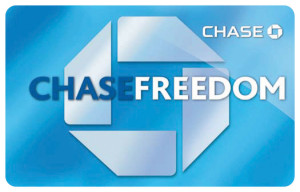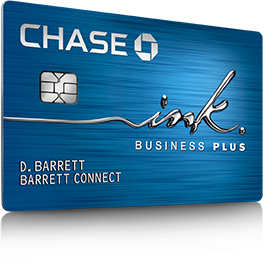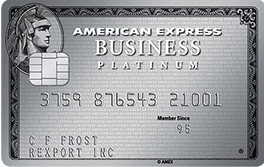DISCLAIMER: Miles to Memories & the author are not credit providers and do not provide personal financial or professional advice or credit assistance. The information published on this site/page is of a general nature only and does not consider your personal objectives, financial situation or particular needs. All information published here is my own personal opinion and comes from personal experience. The information published on this site/page should not be relied upon as a substitute for personal financial or professional advice. Miles To Memories and the author strongly recommend that you seek independent advice before you apply for any product or service, which is described on the site/page.
Your Questions Answered
All of this week I have been asking readers to send in their questions so I can answer them. Here are the related posts:
- Your Questions Answered – Most Common Points & Miles Acronyms
- Credit History with Converted Accounts, Max Number of Amex AUs, Money Orders at Walmart & More
- Ink Bold or Plus, Paying for Someone Else’s Global Entry & Shopping Portal Clawbacks after Returns
If you want to get your question answered, simply head over to this post and leave the question in a comment. I am working to get through most of them this week.
Today’s Question
This question came from Shannon:
What do you do with old credit cards you’ve signed up for? I’m sure you don’t keep them ALL, so what are some general rules about when you get rid of them and for what reasons?
This is a great question and one I know a lot of people wonder about. Since the answer is fairly detailed, I felt it warranted its own post.
What to do with Old Credit Cards
If you are new to the game, then this is probably one of the common sense questions you keep asking yourself. If I keep applying for cards, won’t I at some point have too many? The answer is yes. Some cards are good to get the bonus, while others are good for long term. Here is how I generally determine what I keep and what goes.
No Annual Fee Cards

To start, I love no annual fee cards. While they generally don’t provide the best rewards for everyday spend, I can keep them forever and they help to extend my average age of accounts. Remember the average age of accounts isn’t the biggest factor in calculating your FICO score, but it still counts for 15%!
Besides extending my average age of accounts, I like to keep no annual fee cards around since they give me leverage on future applications. Some banks like Citi & Chase will allow you to shift credit or close an active account to get approved for a new account. So basically I keep the no annual fee account open until I need to sacrifice it for a shiny new account.
My all time favorite no annual fee card: Chase Freedom (my review)
Annual Fee Cards
Of course most rewards credit cards carry an annual fee. When deciding whether to keep an annual fee card I look at a few factors:
- Spending categories
- Card benefits
- Annual benefit such as free hotel night
Spending Categories

There are only a few cards that I feel justify the annual fee based on the spending categories. A great example of one is the Chase Ink Plus. It earns 5x Ultimate Rewards points on internet, telephone & office supply purchases. I earn more than enough in those categories to offset the annual fee.
When looking at the spending categories, try to calculate how much you spend in that category. Remember you can get a no annual fee card like the Fidelity Amex that pays 2% back in all categories. For someone without a lot of bonused spend, it often isn’t worth paying the annual fee.
Card Benefits

I am a pretty frugal person who traveled the hard way for years before learning how to get lounge access and all of the cool perks that can be had. That means I generally will live without something or find a way to get it for free. With that said, cards like the Amex Platinum and others with substantial benefits may be of use to some people.
Annual Benefit

Other than the Ink Plus, this is the main reason I keep annual fee cards. One of my favorite cards is the IHG Rewards Club credit card. In exchange for a $49 annual fee, I receive one free night at any IHG property in the world. Last year I used my wife’s free night at the Intercontinental Hong Kong and mine at the IC Times Square. Both hotels were going for more than $500 per night!
Of course if you don’t use the free night, then the benefit is wasted. Even if something is a good value, it is worthless if you don’t use it. We almost lost our Hyatt annual free night, because I misread the rules on redemption. Thankfully I saved it, but that could have been a $75 mistake!
Downgrading/Retention

Once you have decided to get rid of a credit card, there is still some work to do. First, research to see if there are any no annual fee options. It may be beneficial to convert that card to the no annual fee card for the reasons I mentioned above. Be careful though. Converting to a different product may make you ineligible for a bonus on the product you convert to.
Whether you decide that you want to flat out cancel or simply convert the card, you will eventually speak to a retention representative. I always look to see if they have any decent offers. Since annual fee cards generally have better spending categories and bonuses, I normally prefer to keep them if the company will give me something in return. Citi has been very generous with retention bonuses lately for example.
Conclusion
I generally go through this process with each and every card. Since I have been doing this for awhile, I generally know which cards are keepers and which I plan to get rid of and thus don’t have to always break everything down, but the thinking is the same. I hope this helps the newer people out there and please don’t hesitate to ask your own questions here.





Hi Shawn:
Suppose card A has a bonus that I want to get more than once, say, by closing A and waiting for 24 months. In that sense, is downgrading A to B equivalent to closing A?
Thanks
It depends on the bank, but generally when you convert from product A to product B, then you are no longer considered to have product A. Keep in mind with Citi the clock is ticking for 18 months from when you open or close an account. Chase pays a bonus again after it has been 24 months since your last bonus on that product and if you are no longer a cardholder. Amex on their business cards pays a bonus again 12 months after you cancelled.
Shawn,
I am in a similar situation. I have 3 CCs that earn AA miles (Citi Gold, Platinum & Barclay’s Red). Annual fee on the Platinum is due at the end of this month. I know you explained Citi’s rules, but I am still kinda confused, especially about cancelling VS downgrading.
Card opened: 07/27/2014
Card downgraded: 07/17/2014 (still thinking whether to downgrade or cancel)
if I cancelled, obviously the clock will start ticking right away.
When would the 18 month clock start ticking if I downgraded? Is it the opening date or downgrading date?
Also, if I were to downgrade, which no annual fee Citi product would you recommend?
Thanks so much for your time.
Sorry, I typed the wrong date.
Card opened: 07/27/2014
Card downgraded: 07/17/2015
I haven’t seen any firm data points on that exact scenario, but it is my understanding that converting it starts the clock ticking once again. I am hoping to run a test on that eventually, but I have to get a card in the position to make it possible.
Which no fee Citi product would you recommend if I were to convert? Maybe any cash back cards?
Thanks!
The ThankYou Preferred has great retention offers, the Dividend can be a nice 5x rotating card and the Double Cash is good for a 2% card. Really depends on your goals. Keep in mind if you downgrade to the ThankYou Preferred, then you won’t be eligible for a new sign-up bonus for it for 18 months.